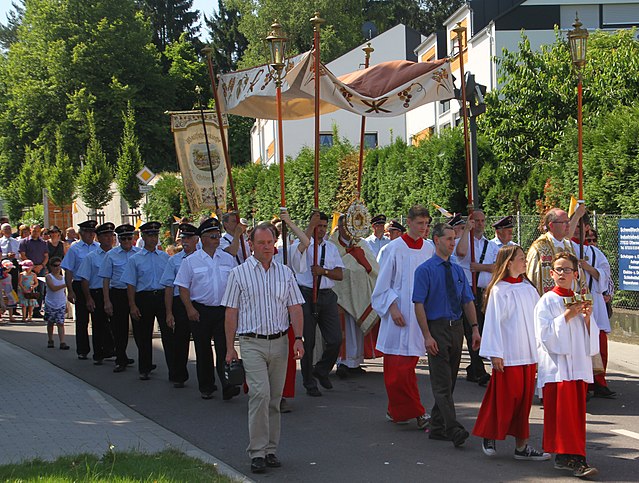Juliana of Liège, was a medieval Norbertine canoness regular and mystic in what is now Belgium. Traditional scholarly sources have long recognized her as the promoter of the Feast of Corpus Christi, first celebrated in Liège in 1246, and later adopted for the Catholic Church in 1264. More recent scholarship includes manuscript analysis of the initial version of the Office, as found in The Hague, National Library of the Netherlands and a close reading of her Latin vita, a critical edition of which was published in French by the Belgian scholar and current (2023) bishop of Liège, Jean-Pierre Delville.
Juliana of Liège
The Feast of Corpus Christi, also known as the Solemnity of the Most Holy Body and Blood of Christ, is a Christian liturgical solemnity celebrating the Real Presence of the Body and Blood, Soul and Divinity of Jesus in the elements of the Eucharist; it is observed by the Latin Church, in addition to certain Western Orthodox, Lutheran, and Anglican churches. Two months earlier, the institution of the Eucharist at the Last Supper is observed on Maundy Thursday in a sombre atmosphere leading to Good Friday. The liturgy on that day also commemorates Christ's washing of the disciples' feet, the institution of the priesthood, and the agony in the Garden of Gethsemane.
Corpus Christi procession. Oil on canvas by Carl Emil Doepler.
A stained glass window in the Saint Mary Basilica in Tongeren
Silver-gilt Corpus Christi monstrance of Toledo, Spain
Procession in Ottersweier, Germany





